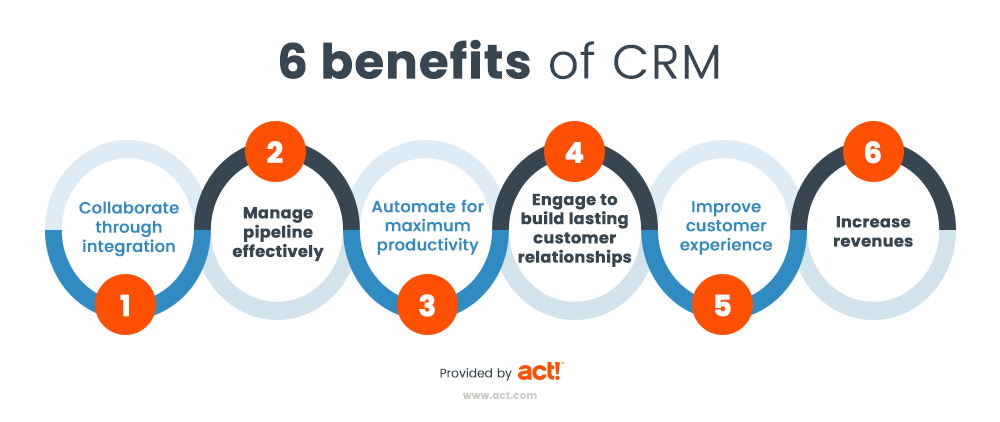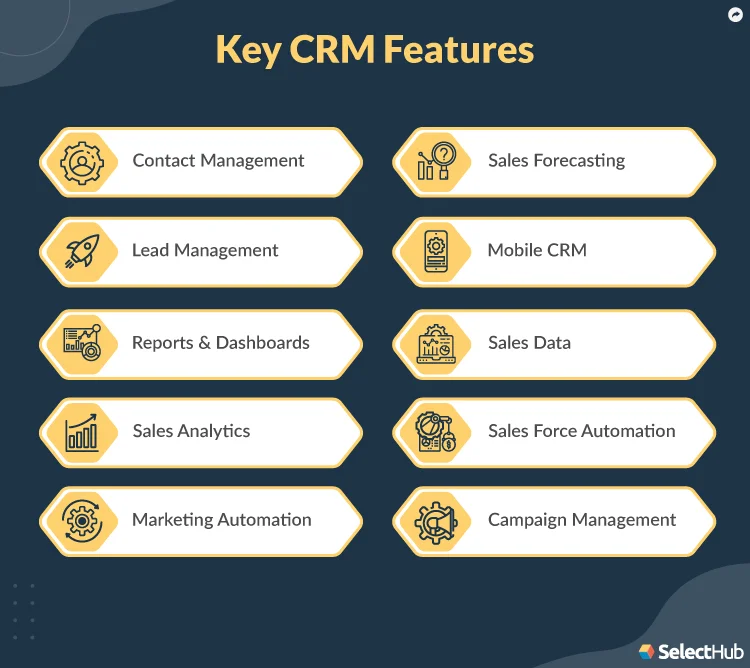In today’s competitive business landscape, maintaining strong customer relationships is paramount to success. A well-implemented Customer Relationship Management (CRM) system serves as a cornerstone for enhancing these relationships, offering a multitude of benefits that go beyond data management and lead tracking.
How CRM Systems Foster Stronger Customer Relationships
Centralized Customer Data: A Unified View
A CRM system acts as a central repository for all customer-related information, providing a comprehensive view of each customer’s journey. This unified data includes:
Contact details: Name, phone number, email address, etc.
Purchase history: Past purchases, order details, and spending habits.
Communication history: Emails, calls, and interactions with customer support.
Feedback and preferences: Reviews, surveys, and product interests.
This centralized data eliminates silos and ensures everyone in your organization has access to the same information, fostering consistent and personalized customer interactions.
| Benefits | Explanation |
|---|---|
| Improved customer service | Agents can quickly access relevant customer data, allowing them to provide more informed and personalized support. |
| Targeted marketing campaigns | CRM data allows for segmented marketing campaigns tailored to specific customer needs and preferences. |
| Enhanced customer understanding | By analyzing customer data, you gain valuable insights into customer behavior, preferences, and pain points. |
Personalized Interactions: Building Meaningful Connections
CRM systems enable you to personalize interactions with each customer, creating a more engaging and meaningful experience. This can be achieved through:
Personalized emails and communications: Tailoring messages based on customer preferences and interests.
Targeted recommendations: Suggesting products or services relevant to individual customer needs.
Customized offers and promotions: Providing special deals and incentives based on customer behavior.
Proactive support: Reaching out to customers before issues arise, based on their past interactions.
By creating these personalized touchpoints, you build stronger customer relationships based on trust, understanding, and value.
| Benefits | Explanation |
|---|---|
| Increased customer satisfaction | Personalized experiences make customers feel valued and understood, leading to higher satisfaction levels. |
| Enhanced customer loyalty | Customers are more likely to remain loyal to brands that provide personalized and engaging experiences. |
| Higher conversion rates | Personalized offers and recommendations can increase the likelihood of sales and conversions. |
Automated Processes: Streamlining Operations
CRM systems automate many repetitive tasks, freeing up your team to focus on building relationships with customers. These automated processes include:
Lead management: Automating the qualification and nurturing of leads.
Sales pipeline management: Tracking sales opportunities and progress.
Customer onboarding: Automating the process of welcoming new customers.
Customer support ticketing: Creating and managing support tickets.
This automation not only saves time and resources but also ensures consistency and efficiency in customer interactions.
| Benefits | Explanation |
|---|---|
| Increased productivity | Automating tasks allows your team to focus on more strategic activities. |
| Improved efficiency | Streamlined processes reduce errors and ensure consistency in customer interactions. |
| Enhanced customer satisfaction | Automated tasks like lead qualification and customer onboarding provide a smooth and efficient customer experience. |
Building Stronger Bonds: How a CRM System Enhances Customer Relationships
Centralized Customer Data: A Foundation for Understanding
A CRM system acts as a central repository for all your customer information. This includes contact details, purchase history, interactions, preferences, and feedback. Having this data readily accessible provides a comprehensive view of each customer, allowing you to understand their needs, preferences, and challenges more effectively.
Personalized Customer Experiences: Tailored Interactions
With a clear understanding of your customers, a CRM system enables you to personalize interactions across every touchpoint. This can range from sending targeted marketing emails based on purchase history to offering personalized product recommendations on your website. By tailoring experiences to individual preferences, you can enhance customer satisfaction and loyalty.
Enhanced Communication and Collaboration: Keeping Everyone on the Same Page
CRM systems streamline communication and collaboration within your organization, ensuring everyone has access to the same customer information. This eliminates silos and empowers your sales, marketing, and support teams to work cohesively. By fostering seamless communication, you can provide consistent and personalized experiences across all departments.
Proactive Customer Support: Addressing Issues Before They Arise
A CRM system can proactively identify potential customer issues by analyzing data patterns. For example, it can flag customers who haven’t made a purchase in a while or who have expressed negative feedback. By anticipating needs and addressing concerns before they escalate, you can prevent customer churn and foster loyalty.
Data-Driven Insights: Continuous Improvement
The data gathered within a CRM system provides valuable insights into customer behavior, preferences, and satisfaction levels. This information can be used to analyze trends, identify areas for improvement, and optimize your business strategies. By continuously refining your processes based on data-driven insights, you can further enhance customer relationships and drive business growth.
Frequent questions
What is a CRM system?
A CRM system, or Customer Relationship Management system, is a software application that helps businesses manage their interactions with customers and prospects. It allows businesses to store and manage customer data, track interactions, automate tasks, and analyze customer behavior. A CRM system can be used by businesses of all sizes, and can be customized to meet the specific needs of each business.
How does a CRM system improve customer relationships?
A CRM system improves customer relationships by providing businesses with a centralized view of their customers. This allows businesses to:
Understand their customers better by tracking their interactions and preferences.
Personalize their interactions with customers, leading to a more positive experience.
Respond to customer inquiries more quickly and efficiently.
Proactively identify and address customer needs.
Build stronger relationships with customers by providing them with personalized and relevant information.
What are the benefits of using a CRM system?
There are many benefits to using a CRM system, including:
Improved customer satisfaction: By providing personalized experiences and addressing customer needs more effectively, a CRM system can lead to improved customer satisfaction.
Increased sales: A CRM system can help businesses identify and target potential customers more effectively, leading to increased sales.
Better marketing: A CRM system can help businesses segment their customers and target them with more relevant marketing messages.
Improved efficiency: A CRM system can automate tasks and streamline processes, freeing up employees to focus on more strategic work.
Increased profitability: By improving customer satisfaction, sales, and efficiency, a CRM system can ultimately lead to increased profitability.
What are some of the challenges of using a CRM system?
While a CRM system can be a powerful tool, there are also some challenges associated with its use. These include:
Cost: Implementing and maintaining a CRM system can be expensive.
Complexity: CRM systems can be complex to learn and use.
Data integration: Integrating data from multiple sources into a CRM system can be challenging.
Data security: Businesses need to take steps to ensure the security of customer data stored in a CRM system.
Customization: It can be challenging to customize a CRM system to meet the specific needs of a business.
Despite these challenges, the benefits of using a CRM system often outweigh the drawbacks. Businesses that are willing to invest the time and resources into implementing and using a CRM system can see significant improvements in their customer relationships and their bottom line.



